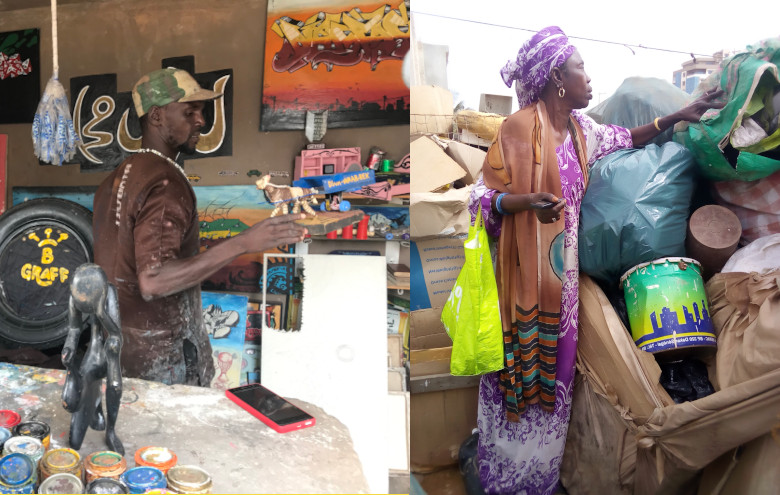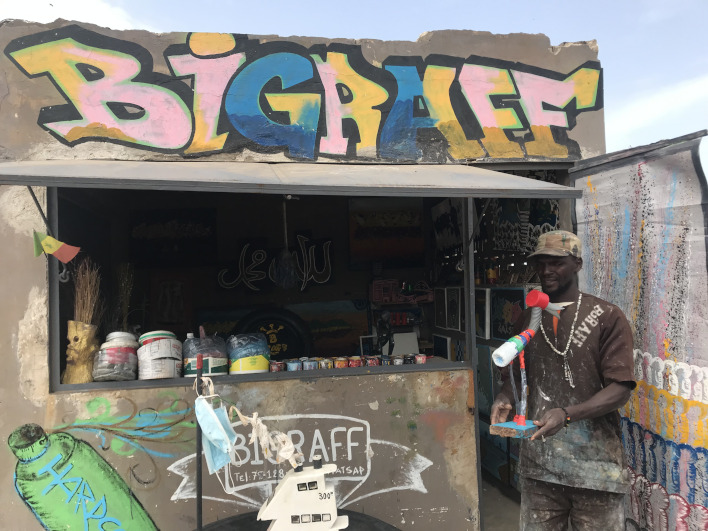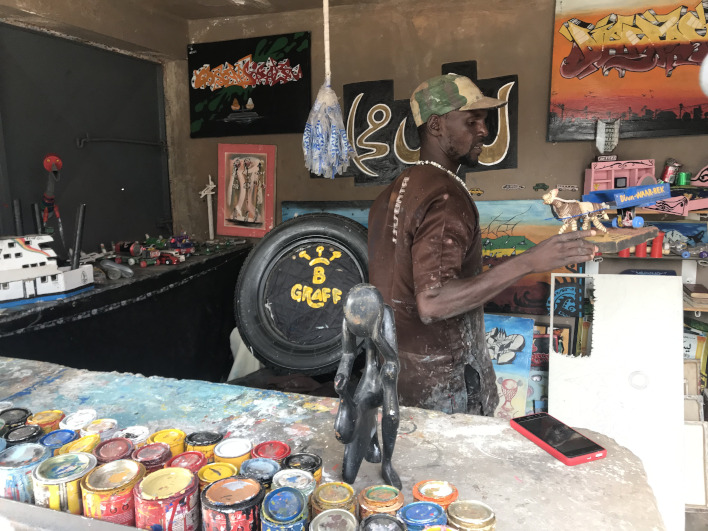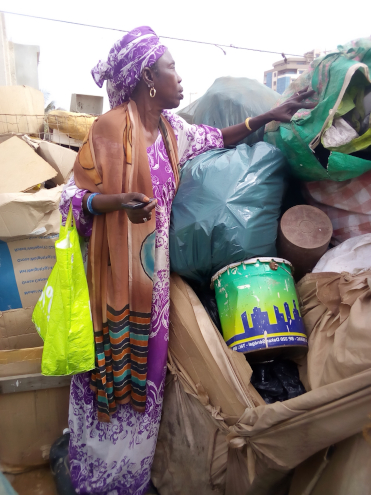Transforming Rubbish into Art and Goods in Senegal

By Jean-Michel Kantoussan, ATD Volunteer Corps member in Senegal
Art, a catalyst for awareness
Mountaga, known as Fada, is a visual artist who finds the materials for his creations in the streets of his hometown Pikine, Senegal. Inspired by his environment, especially that of Pikine, he gives new life to all kinds of objects and materials that otherwise would be thrown away. The Mayor of North Pikine gave him the opportunity to use a space called the “Green Theatre” and Fada transformed it into a space for artistic expression. Today, many people not only admire Fada’s work but also take part in his workshops for painting and waste transformation.

Previously the Green Theatre was rundown and looked like a junkyard, so there were few events there. Today, Fada organises creative workshops and art exhibitions using rubbish that he has recovered and transformed. This approach attracts attention, contributing to discussions about waste management. The Green Theatre also has murals that not only make it more attractive, but also carry a message.
Of his efforts to transform Green Theatre, Fada says:
“This is an opportunity for me to help empower young people in my neighbourhood so that they are not just spectators, but can contribute to sustainable development. I am aware that art is a catalyst for realising something new and it gives me the chance to send an important message.”

Fada gives new life to objects that would have soiled the streets of Pikine before piling up in rubbish dumps. For him, it is also a way of giving a new face to Pikine, a neglected city that is too often belittled.
Fatou Poulho Ndiaye collects and recycles rubbish

Tirelessly, Fatou Poulho Ndiaye picks up rubbish. This is how she earns her living. Born in Thiès, a city in Senegal, she currently lives in Dakar.
Fatou mainly collects plastic bottles, cleans them and then resells them. Every day, she leaves her house at five in the morning to reach her place of work, which is an hour’s drive away. She goes there on foot and collects everything she finds along her way. Then she stores what she collects behind a car park where she sorts and cleans each recovered object: bottles, bowls, plastic bags, scrap metal, paint buckets, boxes, as well as dry bread that she resells to goat breeders.
Her work makes us question our lifestyle and consumer culture: How can we return to making more responsible life choices that will better serve future generations?
Aware of the problems of waste management linked to overconsumption, Fatou says:
“For me, my work is a way to raise awareness about smarter consumption. It also helps some people to be able to buy things when new products would be too expensive for them.”

